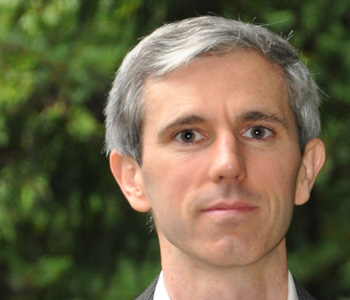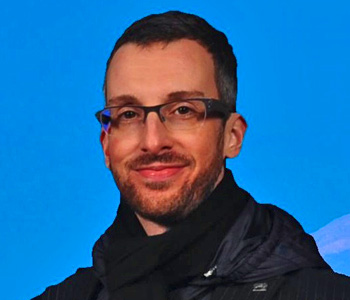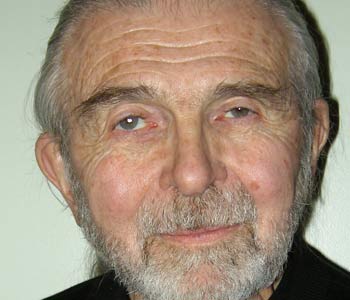Gary Steiner
Animals and the Moral Community: Mental Life, Moral Status, and Kinship
Cambridge University Press
232 pages, 8.5 x 5.5 inches
ISBN 978 0231142342
More than fifty-three billion animals are killed worldwide for human consumption every year, and yet we give little thought to the inner subjective lives of animals and the remarkable extent to which their lives are in important respects very much like our own. If we were to acknowledge the fundamental similarities between human and non-human animal life—for humans, too, are animals—it would be impossible for us to ignore the moral implications of the ways in which we use animals to satisfy our desires.
In Animals and the Moral Community I examine recent animal behavior research and philosophical reflections on the mental lives of animals, and argue that animals merit moral status comparable to that of human beings. The Western philosophical tradition has long argued that human beings are cognitively superior to non-human animals in virtue of possessing reason and language, and that this cognitive superiority entails a categorical moral superiority over animals. Very few Western philosophers have challenged the conventional wisdom that language and reason are morally significant capacities. Even when this wisdom is challenged, ways are almost always found to justify practices such as vivisection and meat eating. In recent years, philosophers and others concerned with the treatment of animals have begun to acknowledge that non-human animals have rich mental lives, that animals have a moral status much higher than has been traditionally recognized.
I argue that capacities such as reason and language are irrelevant to considerations of moral status. The fact that animals have rich subjective lives that matter to them is sufficient by itself to confer on animals a moral status comparable to that of human beings. Many contemporary thinkers resist this conclusion on the grounds that it would impose unreasonable burdens on human beings. Instead, it is incumbent upon us to acknowledge the extent of our moral obligations to animals. Such an acknowledgment does not require a sacrifice of the individual liberty that forms the foundation of liberal society.

We have obligations to protect animals and to refrain from interfering with their efforts to flourish according to their natures, even though animals have no corresponding obligations toward us.
Animals and the Moral Community is divided into two parts. In the first, I examine historical and contemporary debates surrounding the question of the mental capacities of animals. In the second, I develop a theory of cosmic holism that accounts for the fundamental kinship relation that exists between humans and non-human animals.
Historically, philosophers have denied that animals possess language and the capacity for abstract thought. But more recently philosophers have begun to attribute to non-human animals capacities for complex mental functions. Thinkers such as Charles Darwin forced us to reject the traditional prejudice that language and reason make human beings different in kind than animals, to accept once and for all the idea that humans are animals, and to acknowledge that the differences between humans and animals are merely differences of degree. With the increasing recognition that human and non-human animals share many emotional and cognitive capacities, many contemporary animal advocates have moved from one extreme to the other: instead of arguing that animals are completely devoid of cognitive abilities (or, as Descartes argued, that animals have no subjective states of awareness whatsoever), many philosophers and others concerned with animals now argue that non-human animals are capable of sophisticated mental activities such as abstract conceptual thought.
But it is not necessary to attribute such sophisticated mental capacities to animals in order to affirm their moral worth. I argues that even though animals are incapable of conceptual thought and predicatively-structured mental states such as belief and desire, animals nonetheless have rich inner lives. It is on this basis alone that we must recognize that animals possess moral worth comparable to that of human beings. To argue otherwise is simply speciesism—making dogmatic assumptions about species differences much in the way in which sexists or racists make dogmatic assumptions about gender or racial differences.
In the second half of the book, I present a conception of cosmic holism according to which our moral obligations toward animals are a function of the essential kinship between human and non-human animals. Our kinship with animals consists in the fact that human and non-human animals alike struggle to flourish according to their natures. The fact that human beings can conceptualize and reflect on their potential and their subjective experiences while animals cannot has no moral significance. This fact does not justify human beings in using animals to satisfy human desires. In particular it does not justify human beings in killing and eating animals.
In contemporary society, such thinking is typically met with the reaction that it is totalitarian to the extent that it imposes the demand on human beings that they alter their behavior whether or not they acknowledge the legitimacy of the demand. So I conclude the book with a discussion of how liberal individualism, with its emphasis on the value of individual self-determination, might be inscribed within the larger framework of a cosmic holism that demands the cessation of animal exploitation.
The German philosopher Arthur Schopenhauer wrote that “in all essential respects, the animal is absolutely identical with us… The difference lies merely in the accident, the intellect, not in the substance which is the will. The world is not a piece of machinery and animals are not articles manufactured for our use.” We today are heirs of a tradition of thinking that has asserted the fundamental superiority of human beings over non-human animals. Thus the challenge we face is how to subject some of our deepest prejudices to critical scrutiny, how to envision a new way of understanding ourselves and our relationship to non-human nature.
Chapter Five in the book takes up this challenge. Entitled “The Ideal of Cosmic Holism,” this chapter seeks to understand human being as a special form of life—a form of life that is capable of reflecting on its own nature, and hence of taking on moral responsibilities, but whose capacities for critical reflection do not render it morally superior to non-human nature. Human beings are in the unique position of being able to recognize and act on moral obligations toward animals (and perhaps toward non-sentient nature as well), even though non-human beings lack the capacity for reflection and hence lack the ability to take on reciprocal obligations toward humanity. Our moral relationship to animals is one of stewardship: we have obligations to protect animals and to refrain from interfering with their efforts to flourish according to their natures, even though animals have no corresponding obligations toward us. The fact that for millennia we have exploited animals with little if any self-restraint is a sign not that we have any right to do so but simply that we have failed to acknowledge our place within a cosmic whole of which we are merely a part.

The fact that human beings can conceptualize and reflect on their potential and their subjective experiences while animals cannot has no moral significance. This fact does not justify human beings in using animals to satisfy human desires. In particular it does not justify human beings in killing and eating animals.
The horrors visited upon animals in the name of human civilization and prerogative are utterly unconscionable. The fact that animals cannot speak or write prevents them from asserting their rights; indeed, it prevents them from asserting that they have rights. The Western philosophical tradition has maintained that only rational beings can be bearers of rights—but the tradition has never offered any cogent defense of this claim. This claim appears to be nothing more than self-serving prejudice on the part of human beings. Animals and the Moral Community develops notions of cosmic justice and animal rights that can serve as the foundation for redressing a regime of animal exploitation that has gone on largely unquestioned for thousands of years.




We don't put paywalls. We don't distract you with ads. We don't sell your data.
Please help to keep this running!